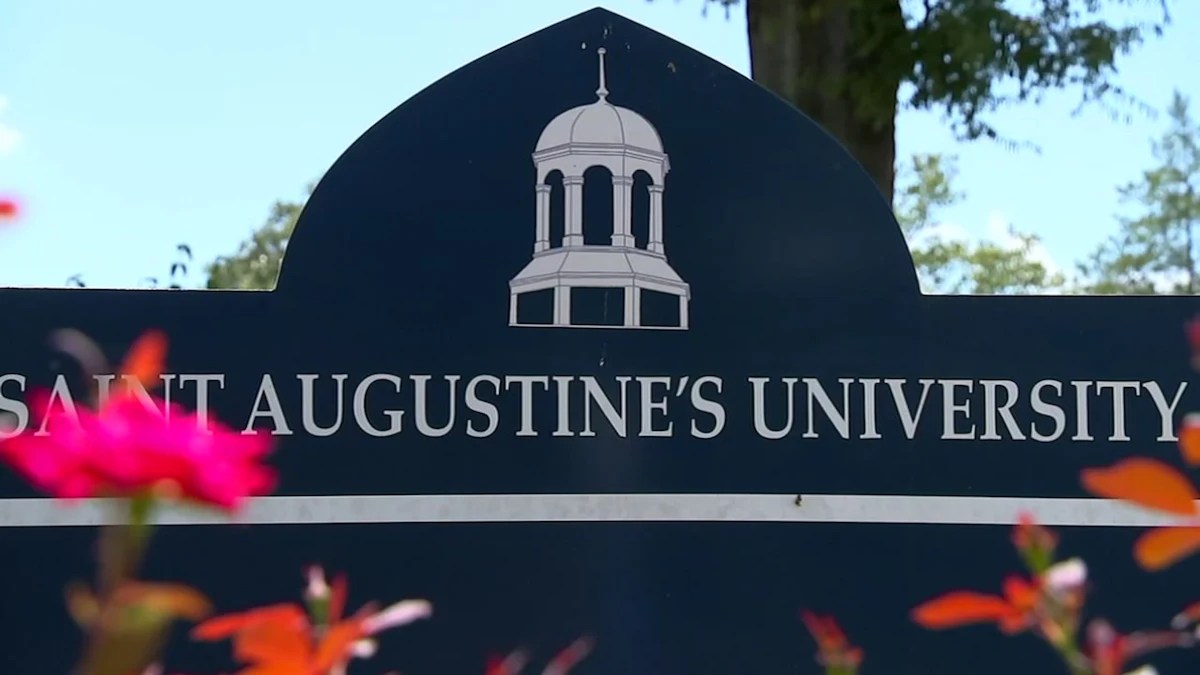St. Augustine’s University, an HBCU in Raleigh, North Carolina lost its SACS accreditation in December of 2023. Loss of accrediation is often considered a death sentence for a functioning college or university.
Arguably the most infamous situation that comes to mind is historic HBCU Morris Brown’s loss of accreditation in 2002. It took Morris Brown 20 years to rebuild, ultimately gaining it from TRACS, a voluntary, non-profit, self-governing organization of Christian postsecondary institutions.
Then there is Saint Paul’s College in Lawrencville, VA. SPC lost its SACS accrediation in 2012 and shut down a year later.
Why is accreditation important at an HBCU?
At an HBCU, most students are enrolled with the backing of financial aid in the form of loans, grants, and other federally funded or subsidized resource allocations. According to the National Center for Educational Statistics, student financial aid comes from federal, state, and institutional sources. Among undergraduates at HBCUs in 2019—20, 82 percent received federal aid, 27 percent received state aid, and 35 percent received institutional aid.
In short, most HBCU institutions would not survive without federal assistance. Morris Brown became all but defunct before it was revived in 2022. Even so, the institution will battle long-term complications from student funding shortfalls.
St. Augustine’s SACS accreditation was revoked at a board meeting on Dec. 3, 2023, with a 10-day grace period before all accreditation was revoked.
Why was St. Aug removed from SACS membership?
According to the disclosure statement rendered by the SACSCOC, the root of the issues with St. Augustine’s was due to a lack of institutional control of finances. The disclosure document cited St. Augustine’s for 4.1 (Governing board characteristics), Core Requirement 13.1 (Financial resources), Core Requirement 13.2 (Financial documents), Standard 13.3 (Financial responsibility), Standard 13.4 (Control of finances), and Standard 13.6 (Federal and state responsibilities) of the Principles of Accreditation–the standards of the membership of SACSCOC, as well as failure to meet the provisions of Good Cause.
Accreditation in SACS has three major requirements. Being accredited in good standing by SACSCOC signifies that the institution (1) has a mission appropriate to higher education, (2) has resources, programs, and services sufficient to accomplish and sustain that mission, and (3) maintains clearly specified educational objectives that are consistent with its mission and appropriate to the degrees its offers, and that indicate whether it is successful in achieving its stated objectives.
St. Augustine’s President Christine McPhail was quickly fired by the university. She would be notified on the same day the university’s accreditation would be formally stripped. Her firing came at the hands of the St. Augustine’s Board of Trustees.
St. Augustine’s interim president Leslie Rodriguez-McClellon, said she fully expects the formal appeal to be completed within the 10-day period. She stated that the loss of accreditation is based mostly on missing audits that are required by the agency. She expects the documents to be delivered promptly to SACS in order to strengthen its appeal position.
The HBCU of 1,000 students was also put on probation by SACSCOC in 2016 and 2018. It was put on probation by SACS a year ago and unfortunately, it escalated to the revocation that is now the center of the school’s woes.
The SACSCOC financial accounting and reporting requirements are clear
In the SACSCOC manual, under Section 13 (Financial and Physical Resources, SACS requires the institution to have sound financial resources and a demonstrated, stable financial base to support the mission of the institution and the scope of its programs and services. (Financial resources) [CR] The member institution provides the following financial statements:
- (a) an institutional audit (or Standard Review Report issued in accordance with Statements on Standards for Accounting and Review Services issued by the AICPA for those institutions audited as part of a system-wide or statewide audit) for the most recent fiscal year prepared by an independent certified public accountant and/or an appropriate governmental auditing agency employing the appropriate audit (or Standard Review Report) guide.
- (b) a statement of financial position of unrestricted net assets, exclusive of plant assets and plant-related debt, which represents the change in unrestricted net assets attributable to operations for the most recent year. for Quality Enhancement (c) an annual budget that is preceded by sound planning, is subject to sound fiscal procedures, and is approved by the governing board.

How have St. Aug’s athletics teams fared so far
Both Morris Brown and Saint Paul’s College athletics suffered as the school fought losing accrediation battles, eventually dropping their respective football programs.
St. Augustine’s football team lost all 10 games it played this season. The Falcons participate at the NCAA Division II level in the CIAA. Their closest game was a 10-7 loss to conference foe Bowie State in September and a 7-0 loss to Fayetteville State University in October. In fact, it has not had a winning season since going 6-4 in 2011.
St. Augustine’s fired its football coach in October. Howard Feggins had a short term with the school, something that has been the norm. He was abruptly fired during the season and filed a lawsuit against the school. Feggins complained about unreasonable conditions and how he was expected to win without any support from the school. 
The school currently has an interim head football coach, interim director of athletics and an interim chancellor.
In cross country, women’s runner Abijah Jepkemboi won the CIAA Runner of the Year, as the team placed third in the conference championship. Volleyball has a .500 season going 13-13. Spring sports will be in question instead of the revocation of accreditation.
Read the SACS disclosure statement on Saint Augustine’s loss of accreditation

